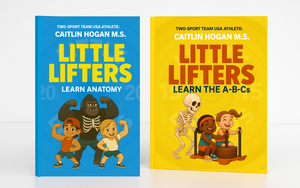✋ Little Muscles, Big Milestones: Why Fine Motor Skills Matter
From tying shoes to gripping a pencil to zipping up a jacket, fine motor skills give kids the power to take care of themselves, express their creativity, and succeed in school.
These small, precise movements—especially in the hands and fingers—build independence, control, and coordination, all while preparing your child for writing, drawing, dressing, and eating.
Fine motor development is a major player in both academic readiness and everyday life.
🧠 Why It Matters
Fine motor skill development supports:
-
Grip strength and hand endurance
-
Dexterity and coordination for writing, drawing, buttoning, etc.
-
Academic readiness – especially handwriting, cutting, and classroom focus
-
Creative expression through art, construction, and design
-
Self-sufficiency in dressing, feeding, and personal care tasks
It also boosts confidence—because being able to do things on their own feels awesome to kids.
🧒 Movement by Age Group
▶️ Ages 2–4:
Activity: “Pinch & Sort”
-
Use tongs or fingers to pick up small toys, pom-poms, or pasta and sort them into containers by color or size.
Activity: “Playdough Power”
-
Roll, squish, pinch, and twist playdough into shapes, snakes, or letters.
Goal: Build hand strength, finger isolation, and early coordination.
▶️ Ages 5–7:
Activity: “Creative Claws”
-
Use clothespins, tweezers, or chip clips to move objects from one bowl to another.
Activity: “Draw Big, Then Small”
-
Draw giant shapes in the air, then repeat on paper using crayons, markers, or chalk.
Goal: Improve precision, visual-motor control, and endurance for classroom tasks.
▶️ Ages 8–10:
Activity: “Squeeze & Control”
-
Use a spray bottle to water plants or draw shapes on the sidewalk with water.
-
Try writing in shaving cream or modeling clay for more resistance.
Activity: “Tool Time”
-
Use screwdrivers, small wrenches, or crafting tools (with supervision) to build fine grip strength and control.
Goal: Strengthen small muscles for writing, sports, and independent living skills.
🔬 Science Spotlight
Fine motor skill development connects directly to the central nervous system, specifically the areas responsible for motor planning, visual-spatial processing, and executive function. These skills require intentional practice, which is why play-based repetition is so important in early childhood.
Kids with strong fine motor skills often show better academic performance, problem-solving abilities, and emotional regulation—because success in the little things builds confidence in everything else.
💡 Parent Tip:
Add fine motor play into everyday routines—let your child zip their own jacket, spread their own peanut butter, or fold a small towel. These mini tasks are developmental gold.




0 comments